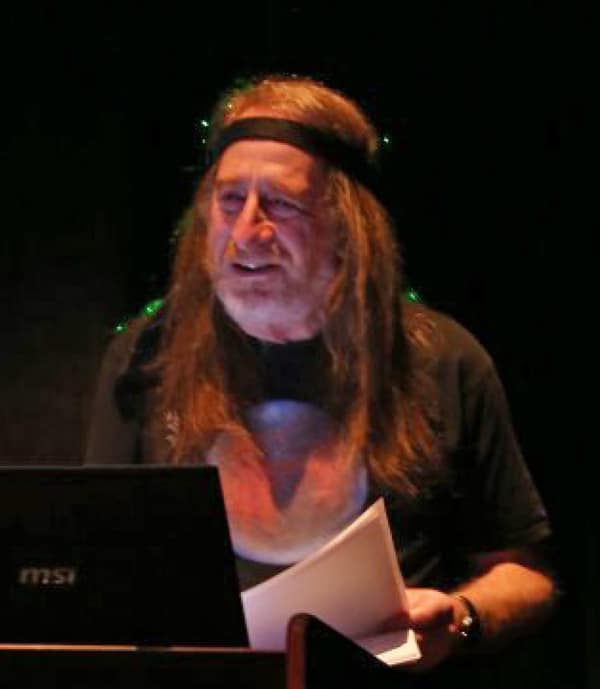From de Vere to Eternity
November 14, 2020

Can a sixteen-year-old play Hamlet? I looked the part. More than one surprised witness expressed appreciation.
Three years later I watched the 1964 Public Theater production of Hamlet. Robert Burr, then 42, had been summoned to replace the 48-year-old Alfred Ryder, who fell short. These two were among a succession of actors playing the prince deep into their majority. Although most had the gravitas to earn their marquees, few fit the script.
Then I learned about Edward de Vere, Earl of Oxford.
In 2017 Oscar Isaac was quoted before his Public Theater rendition at age 38: “You can only be so old and be upset that your mom remarried.” He recognized the problem while ignoring its solution.
Hamlet is so self-evidently autobiographical that even if the Oxfordian attribution is fictional, performers can draw water from this well. I speak to the youth of the character — too young and inexperienced to grab power by force. The prince may be educated and insightful, but that is not sufficient by itself for bloody revenge. It requires four hours on stage with several wrenching deaths to bring the young Hamlet to a dénouement.
The remarriage of the widowed mother of Edward de Vere devalued the teenage earl’s inheritance. The romance between Hamlet and Ophelia mirrors Edward’s courtship of Anne Cecil. Their marriage then pivoted darkly on the machinations of Anne’s father, the spymaster Sir William Cecil (Lord Burghley). Scholars have long identified Cecil as the model for Ophelia’s father Polonius, whose fictional Precepts are a satire of Cecil’s patriarchal Precepts. This slim volume was unknown to Elizabethan theater goers but familiar to Oxford.
The play’s the thing. When Hamlet creates “The Mousetrap,” without any attribution, how like the anonymity of an almost forgotten but very nearly royal aristocrat whose biography has triggered a Shakespearean identity crisis. If Hamlet, then how many other plays and poems were written by this nobleman operating invisibly behind the scenes?
When I debate the Oxfordian case with Stratfordians, they admit that de Vere’s may be the better story, but Shaksper is identified by the First Folio. “Shakespeare wrote Shakespeare,” they insist. Do we say “Twain wrote Twain”? Here was a writer who spun yarns around his youth on the Mississippi. Clemens sensed that a fraud was perpetrated at Stratford.
I do not wish to take anything legitimate away from the William of Stratford who managed to get a name he could not spell to be variously published on many imprints. However, if we are now given to understand that Marlowe’s hand is unaccountably found in Henry VI, why not entertain others? If this publishing business was lucrative to the Stratford businessman, why not a similar commercial project for literature outside of his personal and intellectual reach but perfectly within Oxford’s wheelhouse?
Neither Marlowe nor Oxford would have wished to be named. The pseudonym “William Shake-speare” covered the deceptions. Marlowe got his royalties. Oxford remained near to royalty. For thespians this is not difficult to hypothesize.
I have come to accept it.
— Tom Ditto
Editorial Note: Tom Ditto, né Thomas David DeWitt in 1944, was awarded (under his birth name) a Guggenheim Fellowship in 1978 for his work in the Humanities. He is presently a Fellow (under his married name) of the NASA Innovative Advanced Concepts Program for his contributions to astronomical telescopes. The National Science Foundation has underwritten his work in holographic optics. His short experimental films are archived at the Museum of Modern Art in New York City and were selected, due to his influence on filmmaking technique, for the 1999 American Century exhibition at New York City’s Whitney Museum of American Art.
“How I Became an Oxfordian” is a series edited by Bob Meyers. You may submit your essay on this topic (500 words or less in an editable format such as MS Word), along with a digital photo of yourself, to: communications@shakespeareoxfordfellowship.org. Also include a sentence about yourself, e.g.: “Jane Smith is a business owner in Dallas.” You must be an SOF member to submit an essay.
To join the SOF see our membership page. To read other essays in this series, click here.


